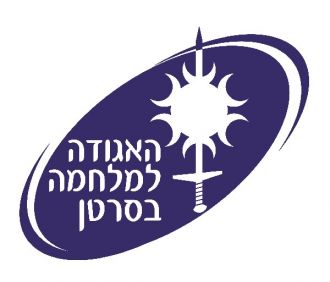As part of the vaccine, cancer cells are collected from the patient's body and extracted from them to make a vaccine.

A new vaccine is designed to prevent the recurrence of the disease among melanoma patients with metastases, and to increase the chances of survival. The vaccine was developed as part of an Israeli clinical study at the Oncology Institute at the Hadassah Medical Center in Jerusalem, with the assistance of funding from the Cancer Society, by a team of researchers, dermatologists and oncologists, led by Prof. Tamar Peretz and Dr. Michal Lotem and is intended for patients with malignant melanoma that has become metastatic and spread to internal organs.
Dr. Michal Lotem, Dermato-Oncologist, at the Oncology Institute, Hadassah Medical Center, Jerusalem, said today that: "The advantage of using cancer cells for this treatment is their high authenticity. The fact that they contain all the building blocks of the tumor, exactly as they are in the particular vaccinee, makes them an ultimate and unique vaccine for the patient. This is a labor-intensive method because, for each patient, a personal treatment must be prepared and therefore the ability to leverage in a marketing and commercial way is problematic. Therefore, the Hadassah Hospital, with the help of funding from the Cancer Society, undertook the production of the vaccines due to the encouraging survival results of the patients. The years that have passed since the beginning of the research in 1996 and its application through the vaccine, have taught us that the initial promising results were real and their degree of significance grew over the years and soon it will also be implemented as an immunotherapy for colon cancer patients."
As part of the study, cancerous tumor tissue, originating from metastasis, which was excised from the patient's body, is collected. The tissue is processed in the laboratory to create cell cultures, in such a way that for each patient a unique group of cells is formed, which corresponds to his specific tumors. As part of the study, the patients received the vaccine, which was produced from the tumor cells in their body, and during the long follow-up, an optimistic and encouraging picture was obtained. Among 102 patients who received the vaccine, in order to prevent the recurrence of the disease, the average survival period lasted about 6 years (median 53 months). These are much better data than what was reported in the medical literature regarding patients in this risk group (the documented survival rate is about 37 months in patients who received prophylactic treatment with interferon alpha). Particularly good were the survival data of patients who were found to have developed an immune response against their tumor cells following the vaccine. 66% of them survived for at least 5 years, and 48% of them lived without evidence of the disease at all, for at least 5 years. It should be noted that vaccination alone still remains a therapeutic strategy, whose main role is when the volume of the tumor in the body is minimal and microscopic. In cases of disseminated cancer, it is not enough to vaccinate in order for the disease to go away. The patient's immune system weakens, and sometimes mechanisms are activated in it that help the cancer to develop unhindered.
This week is also "Skin Cancer Prevention and Early Detection Awareness Week" as part of a special promotion, approximately 300 free testing stations will operate throughout the country, at the initiative of the Cancer Society and in cooperation with General Health Services, Maccabi Health Services, National Health Insurance Fund, United Health Insurance Fund , the Israeli Association for Dermatology and the Israeli Association for Plastic Surgery.
At the stations, free tests will be conducted for the early detection of skin cancer, and information leaflets will be distributed to the general public, regardless of membership in one of the health insurance funds. The list of test stations according to division into regions, was published in all locations last weekend, on the website of the Cancer Society located at www.cancer.org.il, as well as on the teleinformation center of the Cancer Society manned 24 hours a day 1-800-599-995.

2 תגובות
And these Nazi Englishmen want to boycott us